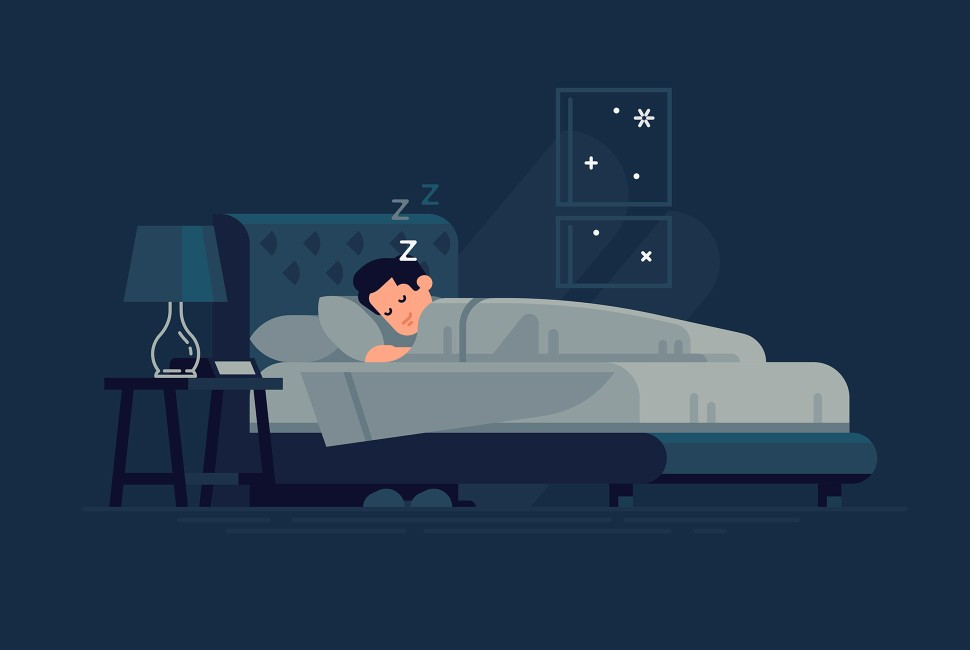The Importance of a Consistent Sleep Schedule
Getting enough sleep is crucial for our overall health and wellbeing. But not just the quantity of sleep matters - the timing and consistency of it play a significant role too. Establishing a consistent sleep schedule can lead to better sleep quality, improved mood, increased energy levels, and a host of other benefits.
Why Consistency Matters
Our bodies have an internal circadian rhythm that regulates when we feel awake and when we feel sleepy. When we have a consistent sleep schedule, we train our bodies to follow this rhythm, making it easier to fall asleep and wake up at the same time every day. This helps regulate our sleep patterns, leading to better and more restful sleep.
On the other hand, when we have inconsistent sleep schedules, our bodies can become confused and our sleep quality can suffer. This can lead to difficulty falling asleep, waking up feeling groggy and tired, and even insomnia in some cases.
Benefits of a Consistent Sleep Schedule
A consistent sleep schedule can have many benefits, including:
- Improved mood: Getting enough and consistent sleep can help regulate our mood, reducing feelings of irritability, anxiety, and depression.
- Increased energy levels: When we have consistent and restful sleep, we wake up feeling refreshed and energized, ready to tackle the day ahead.
- Better focus and concentration: A consistent sleep schedule can help improve our cognitive function and ability to focus and concentrate.
- Better physical health: Getting enough and consistent sleep has been linked to lower levels of inflammation in the body, a stronger immune system, and a reduced risk of developing certain chronic health conditions.
Tips for Establishing a Consistent Sleep Schedule
Here are some tips to help you establish a consistent sleep schedule:
- Stick to a set bedtime and wake-up time: Even on weekends, try to keep your sleep schedule consistent. This helps regulate your circadian rhythm and improve the quality of your sleep.
- Avoid screens before bedtime: The blue light from screens can interfere with our sleep, making it harder to fall asleep. Try to avoid screens for at least an hour before bedtime.
- Create a bedtime routine: Develop a relaxing bedtime routine, such as reading a book, taking a warm bath, or meditating, to help signal to your body that it's time for sleep.
- Avoid caffeine, alcohol, and heavy meals before bedtime: These can all interfere with sleep and make it harder to fall asleep and stay asleep.
A consistent sleep schedule is crucial for our overall health and wellbeing. By sticking to a set bedtime and wake-up time, avoiding screens before bedtime, creating a bedtime routine, and avoiding caffeine, alcohol, and heavy meals before bedtime, you can improve the quality of your sleep and enjoy the many benefits that come with it.
Truway Health News & Insights
Breathe, Refuel, Recharge: Finding Your Daily Balance
Written by Perry JohanssenPublished and Edited by Truway Health Life rarely slows down on its own. B...
Truway Health Launches “ImmuneNet”: A New Era in Quantum-Synaptic Immunotherapy
Reimagining How Immunity Can Be Understood and Guided At Truway Health, innovation never sleeps.Toda...
Announcing the HEALTH Trial: Humanoid Evaluation and Learning in Healthcare
Published by Truway Health, Inc.Principal Investigator: Gavin SolomonClinicalTrials.gov Identifier:...
We’re thrilled to launch our first-ever clinical trial of TruDxPc
Study Identification Protocol ID: TRHW-DX-001 Brief Title: Truway Diagnostic Tools in Primary Ca...
What to Know About the Seasonal Flu This Year
As cooler weather sets in, flu season returns. Each year brings new strains, evolving guidance, and...
Gamification and Health: Turning Wellness Into a Daily Game
Introduction For many people, staying healthy feels like a chore: eating clean, exercising regularly...







